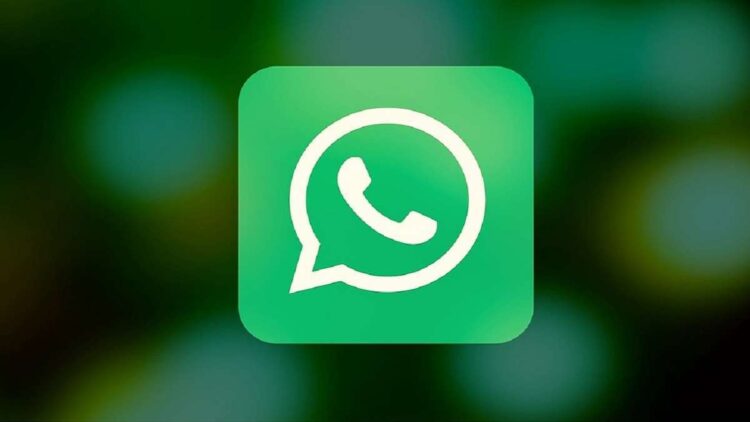WhatsApp warns Delhi High Court that if it is forced to crack encryption, it would “leave India.”
New Delhi: WhatsApp, the widely used messaging app owned by Meta, threatened to “leave India” on Thursday, telling the Delhi High Court that it would “exit India” if it was forced to crack message encryption. People use WhatsApp for privacy, according to a supporter of the messaging software, and all conversations are end-to-end encrypted.

The High Court scheduled a hearing on August 14 to consider petitions filed by WhatsApp LLC and its parent company Facebook Inc., which is now Meta, contesting the 2021 Information Technology (IT) regulations for social media intermediaries, which mandate that the messaging app track conversations and establish mechanisms to determine the original source of information.
“As a platform, we are saying, if we are told to break encryption, then WhatsApp goes,” WhatsApp’s attorney said in court. WhatsApp said that the requirement infringed on users’ privacy and that it was implemented without consulting anybody. The Center had previously informed the court that Facebook and WhatsApp could not legitimately claim to preserve privacy as they monetize the data of their users for commercial and corporate objectives.
On February 25, 2021, the government released the Information Technology (Intermediary Guidelines and Digital Media Ethics Code) Rules, 2021, which mandated that major social media sites, including Facebook, Instagram, WhatsApp, and Twitter, adhere to the most recent standards. In order to await the transfer of all other petitions contesting various sections of the 2021 IT Rules to it in accordance with a Supreme Court ruling, the bench directed that the issue be scheduled for hearing on August 14.
What is the most recent disagreement?
In opposition to WhatsApp and Facebook’s petition challenging the recently amended IT Rules, the Ministry of Electronics and Information Technology (MeitY) filed an affidavit claiming that WhatsApp has already violated the fundamental rights of its users in India by denying them access to any dispute resolution procedures in the nation. The following reproduces the relevant sections of the governing law and the dispute resolution provisions.
According to the Ministry, if the IT Rules 2021 are not put into effect, it will be impossible for law enforcement to track down the sources of false and misleading material that spreads to other platforms, upsetting social harmony and creating issues with public order. However, Facebook and WhatsApp have contested the new regulations, claiming that they are unlawful and undermine people’s right to privacy.
A bench led by Acting Chief Justice Manmohan noted that the parties would have to argue the case and inquired as to whether the question had been discussed in any other nation. Nowhere else in the world is there a rule like this one. Not even in Brazil,” the WhatsApp attorney said. WhatsApp’s attorney said during the hearing that measures have been made to “contain virality” and that it is easy to identify the original sender of a message “traditionally” by looking at the message’s sender sequence.
The attorney also told the court that once the necessary regulations are established, all platforms would need to abide by the new data protection legislation, which addresses the gathering, processing, and sharing of data. According to WhatsApp, the traceability clause violates the basic right to privacy and is unlawful.
WhatsApp’s denial of message tracking
WhatsApp said in its 2021 petition that end-to-end encryption and its advantages are “at risk” when intermediaries were required to identify the original source of information in India upon a government or court order. According to the platform’s petition, the traceability clause compels the business to violate both the privacy principles that underpin its messaging service and its end-to-end encryption.
“We have continuously opposed laws that would breach our users’ privacy by standing with civil society and experts from across the globe. A WhatsApp representative said, “We will also continuing working with the Indian government on realistic measures to protect public safety in the meantime, including as fulfilling legitimate legal demands for the data that we have access to.
The Center responded by stating that the legislation gives it the authority to demand that these organizations provide secure online environments and combat “illegal content,” either through their own efforts or by working with law authorities. According to the Center, the Information Technology Act’s Section 87 granted it the authority to create Rule 4(2) of the Intermediary Rules, which requires a major social media intermediary to make it possible to identify the original source of information in the “legitimate state interest” of reducing the threat posed by fake news and offenses against women, children, and public order.
On March 22, the Supreme Court moved a number of appeals against the Information Technology (Intermediary Guidelines and Digital Media Ethics Code) Rules, 2021, that were pending before several high courts throughout the nation to the Delhi High Court. Numerous petitions about the matter were pending before various high courts, including the high courts in Karnataka, Madras, Calcutta, Kerala, and Bombay.






